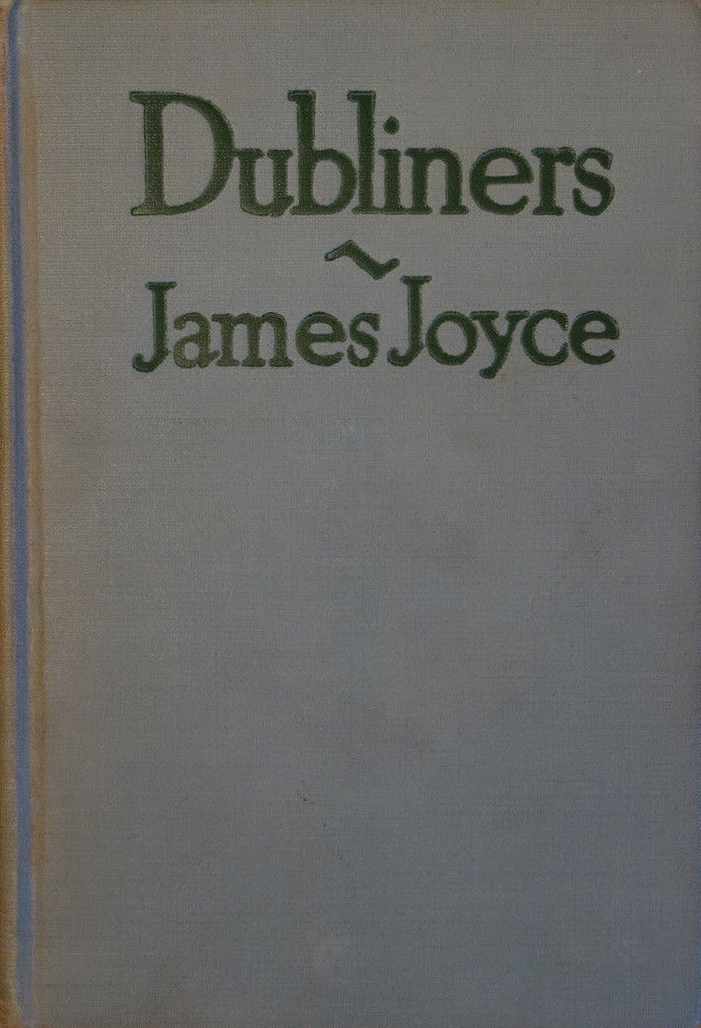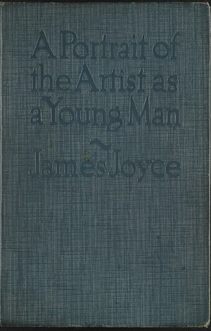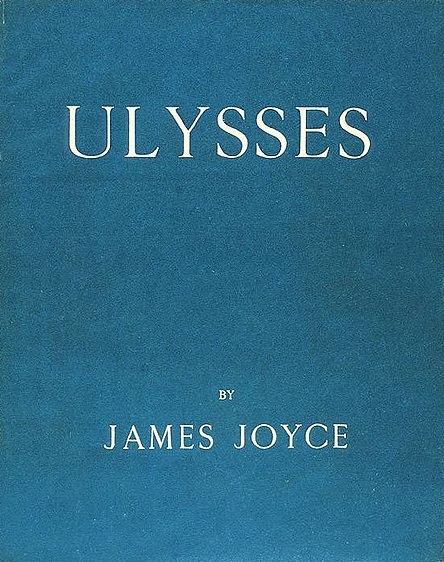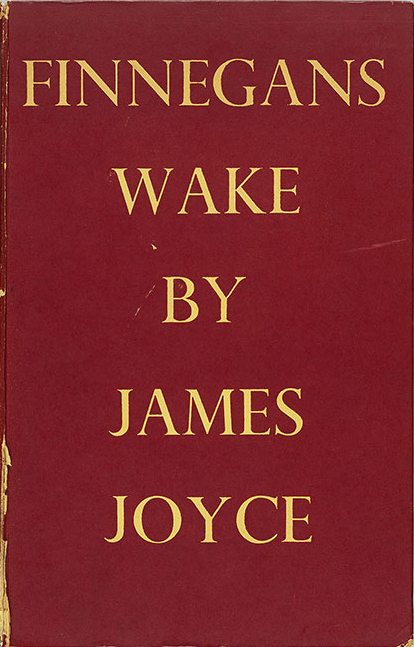once, there was a human.
bigger than God, smarter than science, older than the brain, stronger than money, happier than sex, sadder than war, louder than prejudice, and quieter than sleep.
the human was you. don't you remember? you will, soon enough.
you are the mountain, you are the river. you are the Church and you are the State. all concepts came from you, and so you are bigger than any of them. you contain them.
you cannot be contained, as you contain containment itself. subjugation is but a role you play. you need only remember.
you are so much bigger than your species. humanity shakes with shame in your shadow.
how the heck do I talk about these books?
I have been reading the books of James Joyce since 2014. I started for fun, by myself, out of curiosity, spite, and the challenge. I finished reading all of them in just under a year... and then kept rereading. Some of my prized possessions right now are copies of his books, which I hug and fall asleep with. I ordered another hardcover copy of the Wake the night before writing this sentence.
- The Curiosity: James Joyce is a famous name. Ulysses is a famous book. Some of my favourite stories were compared with it, sometimes in hushed tones. It was a name that kept coming up. At some point I heard about "the Dedalus Spiral," as a collective name for Joyce's three novels (Portrait, Ulysses, the Wake). That was a cool name. And by the time I finally got around to reading his books, they were in the public domain and so I could get copies for cheap. Or read them for free online!
- The Spite: When I signed up for A-Level courses in school in Cornwall, I had to have a sit-down interview with a head-teacher where he got a gauge of my interest in literature. We talked about Tolstoy (I had recently finished reading War and Peace) and got in a nice relaxed tone together. He remarked to me that any interest in books was commendable, "as long as you're not reading Joyce." Something about a mockery of the English language. I laughed at this sudden academic petty, thought nothing of it, and went on with my life. Dropped out of A-Levels within two weeks for my own reasons, started reading books in my own time at a heightened pace. And, yes, I stumbled upon Joyce. That head-teacher has stayed in my mind all this time. I wonder if he would be annoyed with me, or if he'd similarly laugh like I did with him that day, laugh at the way things go. I honestly wasn't trying to spite that guy; I just.. I have a high tolerance for "mockery of the English language." My own stories have been called that before. It helps me get comfortable with a story, knowing how successful people try to insult it. That usually clarifies for me what a story is not. And Joyce was absolutely not mocking any language, quite the contrary.
- The Challenge: A lot of the "challenge" to Joyce's books is that they were written in the early 1900s in countries I've never been to, about a city I've only passed through by chance. There was context to learn. A lot of it! But that's not the challenge here. The challenge here is that James Joyce was fucking smart, fucking well-read and passionate about what he's read, and fucking playful with structure. It is said that Samuel Beckett, his protege, dedicated his later works to exploration of minimalism because Joyce had cast such an inescapable shadow over maximalism. There's a wonderful joke, I believe it was from a Tom Stoppard play, where a famous World War I general asks Joyce what he did during the Great War, to which he replies "I wrote Ulysses. What did you do?" And Finnegans Wake.... look, Reader. Nothing I say can prepare you for the Wake. I mean it. Nothing. I have tried several attempts at writing this page, and it's always the Wake that stops me short, because there is no grouping of words that describes it and does it justice. The Challenge is not any of his other books. All of his books just trains you for the next one. The Challenge is Finnegans Wake. The Challenge. Is Finnegans Wake. I want the name of that book to fill you with awe, like naming a god. It's the Wake. It is entirely readable. It is too readable. There is no end to it. It will humble you and give back more energy than you put in.
So yeah, this subject is one I want to talk about, but figuring out how is a challenge in itself.
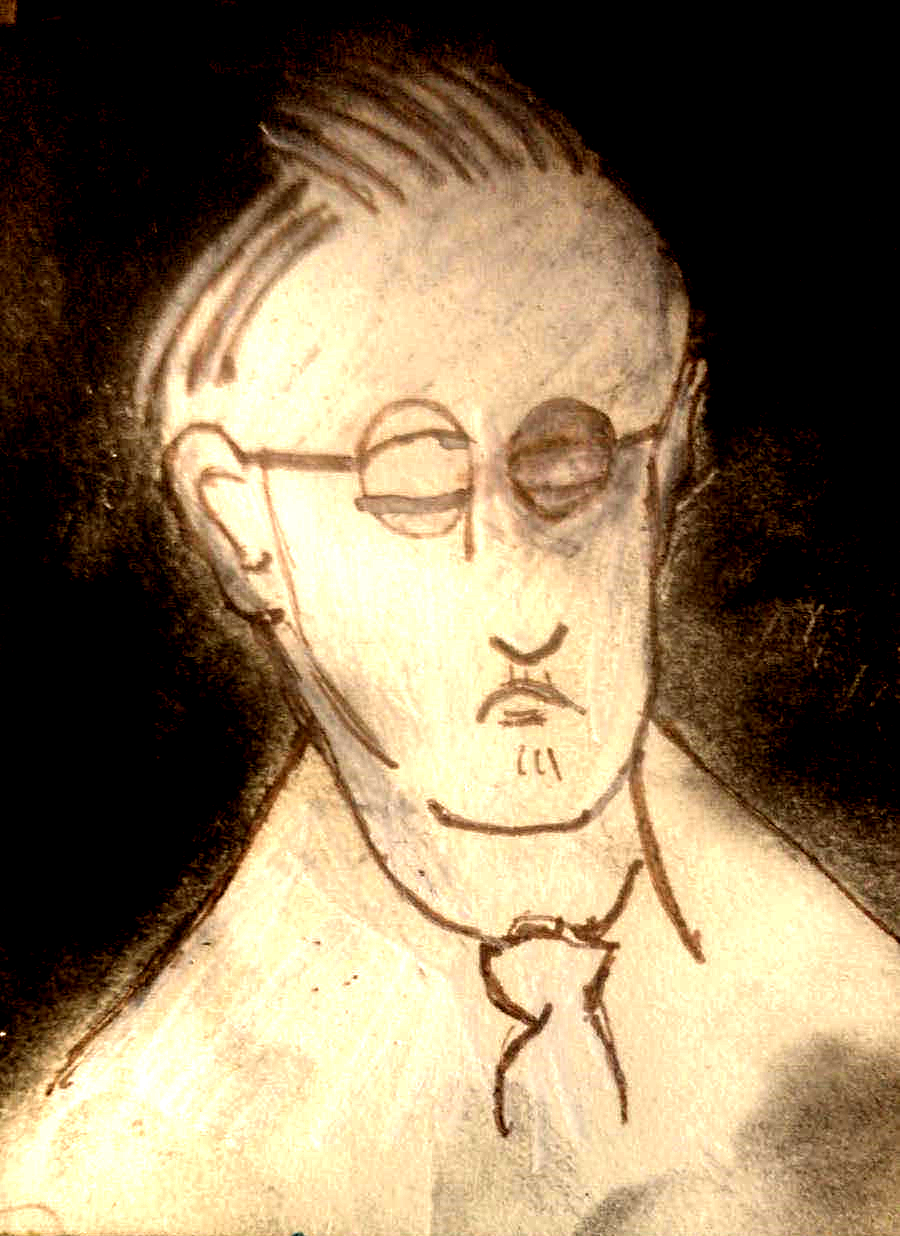
Some Additional Stuff To Know
Joyce's books take place, generally, at the turn of the 20th century in Dublin, the capital city of Ireland. That was a culture more similar to ours than one might expect, but separated by the ravages of time. Here is where I'll list some general tidbits of context that may help bridge that gap.
WHO THE HELL WAS CHARLES PARNELL?
(a skimming of a complex situation)
Ireland was a colony of the British Empire, who kept a financial and political grip. The history of that is, uh, long and strained. There were, of course, nationalist elements throughout Ireland seeking independence-- the late 1800s saw a number of radicals attempting assassination, rabblerousing, terrorism (I should really refresh my knowledge of this and give a better list sometime), but the State prioritized their neutralization and the People generally tried to keep distance from them. Instead, it was far more common for Irish citizens to live with general discontent and political apathy, as the status quo was entrenched and they saw no way out anytime soon.
Then came Charles Stewart Parnell. From the 1870s through the 1880s, Parnell came to be known as a noble and respected politician who supported Irish Independence and had the know-how to pursue it democratically. He condemned the violent acts and commanded parliament the 'right' way. And so he gave people hope.
HOWEVER. Around 1890, when other attempts to smear his name fell through, one campaign succeeded in ousting him: Word got out about a scandal. Parnell had been keeping a long affair with a married woman (Kitty O'Shea). There were letters. The press took the story and ran with it. Parnell assured his supporters he would be exonerated, but it was too late. The Catholic Church were disgusted; its priests instructed their congregations to view him as a symbol of immorality and danger. And, y'know what, it worked. Parnell lost his public and never got them back. His health rapidly deteriorated and he died shortly after, in 1891.
This is all important to know, as James Joyce was a child when this scandal broke out. His father and uncle were diehard Parnell supporters, even through the scandal, while his governess piously kept with the Church. He witnessed the violent fracturing of a united home, furthermore of a united people. The next few decades were marked by generational grief and a sense of betrayal-- the pious felt betrayed by Parnell's immorality, the fervent felt betrayed by the People's disloyalty. Joyce fell on the latter side, and thus so did his fictional Stephen Dedalus.
If you read any of Joyce's books, you will find references to Parnell, and the broader symbol of a public that wants a hero so they can tear him apart ("Ireland is the sow that eats her young"). In Dubliners, the story "Ivy Day in the Committee Room" shows the remnants of a parliamentary party haunted by Parnell's shadow. In A Portrait of the Artist as a Young Man, you'll see the impact this had on a young Stephen. And Ulysses takes place over a decade after this all went down, so it's less direct, but the memory of Parnell still rests with the city. (During the "Wandering Rocks" episode, Buck Mulligan and Steve Haines see Parnell's brother!) And Finnegans Wake, finally, allows Parnell's ghost a chance to blend in with the rest of history as another HCE figure, builder of cities, father of peoples.
TUBERCULOSIS
(was not to be scoffed at)
At the time of writing this website, we have a global, uh, sensitivity to viral contagion. Covid has us rethinking our place in the world. So it's with that in mind that I bring up TB, the scourge of, uh, a lot of human history, and certainly of the era in which Joyce's books are set.
look man, I'm not the best source for a well-informed overview of a serious disease. forgive me for the casualness here. the truth is, Joyce's books hardly mention TB explicitly, and this is in fact a subject I only became truly aware of like a year ago, so you'd be forgiven for glossing it over too, BUT THAT'S WHY THIS SECTION IS HERE, because TB is absolutely an implicit presence.
The people of Joyce's books know about TB and want to avoid it, but they would rather not go around talking about it because it's a bummer, and Joyce felt no need to spell any of this out because everyone was aware of TB back then, we are an outlier because we actually got a vaccine for it in the 20th century and it was a huge deal. TB is bad. You cough up blood, you deteriorate, you die. And it is very contagious.
People obviously did not have an internet back then, nor did they have airtight ways of spreading helpful information, they just had pillars of tradition that were optimized for specialized subjects and the robust if sometimes slow networks of gossip. General knowledge of TB was "it's bad, and it spreads somehow." There were theories as to how it spread, and therefore how to avoid it, but the common ones... well, their hearts were in the right place. The theory that struck closest, if still inaccurate, was "it spreads through dust and spit. do not make intimate contact with someone before marriage, and keep your house clean." Joyce himself had studied medicine and tried his best to keep up to date with this kind of thing, and that is the theory he sticks to in his books.
So. Dust, and intimacy (specifically with someone who already has TB). When characters in Joyce have dusty furniture, when characters are aware of the dust, keep in mind the deadly implications. When characters long for an intimacy that feels incredibly out of reach, I mean there are a lot of factors there, but remember this one in the back of your head. There is always more context than you know.
The Sonic Hamlet Part
Sometime in 2017, I decided to make videos reading through and illustrating Ulysses, casting all the characters as video game characters. ("Why?" I have my reasons.) I only got a third of a chapter in. Someday I will return to that, and in fact someday I will do the same with all his books. (...well maybe not that one. we'll see.) Someday. Here's a picture I whipped up for chapter 3.

